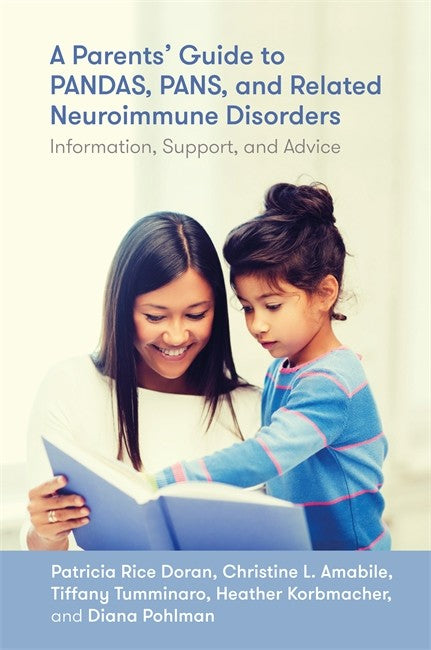1
/
of
1
A Parents' Guide to PANDAS, PANS, and Related Neuroimmune Disorders
A Parents' Guide to PANDAS, PANS, and Related Neuroimmune Disorders
SKU:9781785927683
Regular price
$39.19 AUD
Regular price
$48.99 AUD
Sale price
$39.19 AUD
Unit price
/
per
Taxes included.
Shipping calculated at checkout.
Share
Having a child who suddenly develops PANDAS (Pediatric Autoimmune Neuropsychiatric Disorders Associated with Strep), PANS (Pediatric Acute-onset Neuropsychiatric Syndrome) or related conditions such as encephalitis can be a daunting challenge for parents. This clear guide explains the symptoms and diagnosis of PANDAS and PANS, with treatment options and recommended strategies for supporting children at home, at school, and in community settings.
The book covers key symptoms including OCD, tics, anxiety, sensory issues and personality changes, with practical advice on medical management, nutrition, lifestyle, and addressing social and behavioural needs. Each chapter also includes handy sidebars with key information to remember, and action steps for overcoming challenges, managing relapse, family self-care and providing children with the best possible support.
Market: Parents and carers of children with PANDAS/PANS; other relatives. Also clinicians and healthcare professionals in need of an introductory guide to these conditions.
About the Author
About the Author
Couldn't load pickup availability


